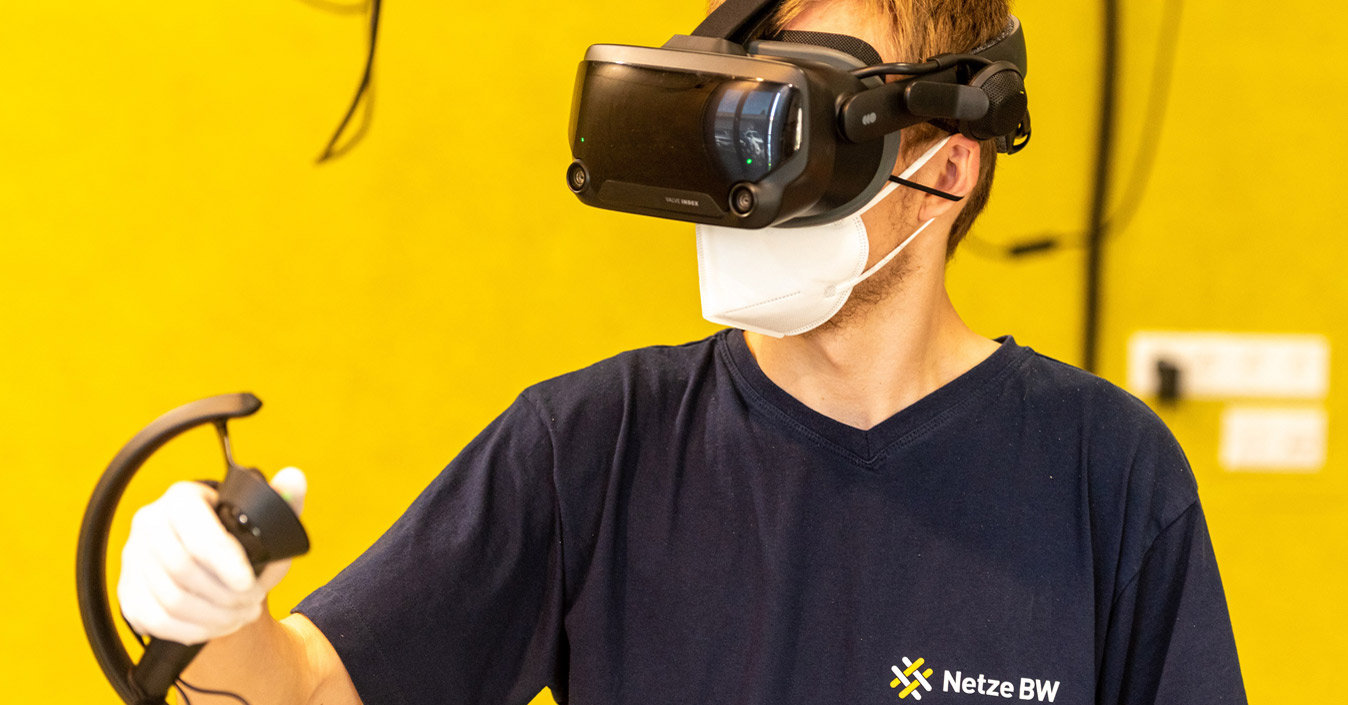Practice digital technology
In the meantime, digital technology is increasingly being used to create artificial worlds in which, in a very realistic way, rare – or potentially risky – work processes are transmitted. These experiences in cyberspace increasingly complement the learning of basic skills at the workbench. “Virtual reality opens up completely new possibilities for us,” Friedrich explains.
“One of the axes of training to become an industrial engineering electronics technician is learning how to use electrical systems,” says Jürgen Buchtler, trainer at Netze BW in Biberach, from work experience. “The working steps must be rehearsed extensively because the error can have serious consequences. We can now use digital technology to train right-hand movements in a safe environment.” For example, switching operations can be perfectly simulated on virtual switches.
The difference between AR and VR
In addition to the digital picture of reality – virtual reality (VR) – “augmented reality” (AR) is also playing an increasing role. In doing so, the digital and analog worlds are connected to each other. With both methods, you usually wear special glasses. However, augmented reality does not completely isolate the user from the normal environment, but rather displays information in glasses that is useful for repair work, for example.
But there are also many possible uses in the commercial field. EnBW is testing different use cases, such as VR app training, ‘work in the home office’ VR training or VR games that sales staff can use to prepare for conflict situations.
Popularity: Training as a drone pilot
There is a very special additional qualification that is particularly required among employees and trainees of EnBW and Netze BW: Drone Pilot. After three training modules and passing the test by a test center approved by the Federal Aviation Administration, you have a remote pilot license in your pocket. Using small aircraft, “experimental pilots” can take a closer look at the power shafts and overhead lines. This is much more efficient compared to the traditional scan.
The new building of the Training Center provides space for up to 80 trainees on an area of approximately 1,800 square metres. Netze BW in Biberach currently trains about 20 of its apprentices each year as electronics technicians for industrial engineering. In addition, there are interns from partner companies and “experiential internships”, for example in the context of school cooperation. The offer is complemented by practical network training in the context of technical innovations as well as recurring training courses related to occupational safety. Some offers are also open to outside companies. (horse)

“Certified gamer. Problem solver. Internet enthusiast. Twitter scholar. Infuriatingly humble alcohol geek. Tv guru.”





